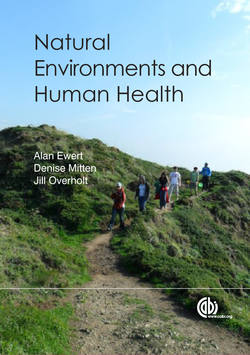Читать книгу Natural Environments and Human Health - Alan W Ewert - Страница 15
На сайте Литреса книга снята с продажи.
2 Human Perceptions of Nature
ОглавлениеAt the heart of commons-based cultural systems is the recognition that diversity, biological, linguistic and cultural, must be protected as a means of survival.
R. Martusewicz (2005, p. 340)
To better understand humans’ connection to nature and the relationship between human health and natural environments, it is important to consider how both individuals and societies perceive the natural environment. Human actions are driven by perceptions regardless of the reality of our evolutionary, biological, and psychological connections with nature. Perceptions of nature are driven by WorldViews, which are impacted by culture (social interactions) and our interaction with the environment at large. These perceptions ultimately account for the ways that humans interact with, value, protect, benefit from, and use the natural environment.
The overarching goal of this chapter is for people to learn that the natural environment is personally significant to all of us. We first make a case that humans are innately connected with nature evolutionarily, biologically, emotionally, spiritually, and socially. This connection is reciprocal; we are influenced by nature and we influence nature. Next we address the evolution of WorldViews and human perceptions of nature leading to the modern, predominantly Western tendency to place humans outside ecosystems; and the subsequent sense of and reality of disconnection from nature. Finally, we examine potential concerns rising from estrangement from nature and the ramifications of such separation, concluding that a WorldView that includes a positive affiliation with nature will lead to increased health and well-being for humans.
